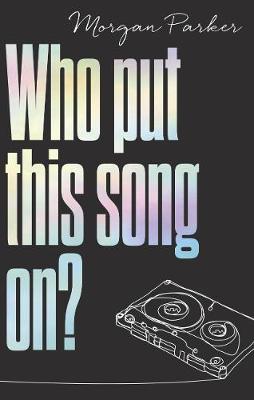Reviewed by Amber (The Literary Phoenix) on
Disclaimer: I received this book for free from BookCon 2019 and Delacorte Press in exchange for an honest review. This does not affect my opinion of the book or the content of my review.
I would like to open this review by touching briefly on how much I liked Morgan Parker’s writing style. This novel is poetic without being flowery and it all flows together so well. There was such an amazing balance of description, dialogue, and events and I never felt like I was being “told” something. There’s a lot of pop culture references here, as the book is partially autobiographical. Morgan Parker also has a great, if subtle, sense of humor that comes through in the constantly-falling-flat jokes. Nobody in the book seemed to think she was being funny, but I thought it was great.
Who Put This Song On? is not a girl power story. It’s not a black power story. It’s just… a story. And yes, Morgan’s race and gender are relevant, because they frame the way she is perceived by others and the way she defines herself. The main character in this book, is also named Morgan, so from here on out, know that if I say “Morgan” I’m talking about the character, but if I say “the author” I’m talking about the author. Otherwise, this is going to get confusing.
Okay.
In the intro to the book, the author states that she’s writing this because there must be other people like her who went through the same things she did. Struggling with her identity, yes, but also struggling with her mental health. This book deals with race, religion, and mental health in a very honest way. I could never understand what it feels like to be a black girl growing up in a very white, very religious suburban community. I am white, and as such, I have been privileged in ways that Morgan never was, and I have no right to claim any part of her story as reflective of my own. But. I can, however, empathize with how it felt to be surrounded by well-meaning, hurtful people at a formative time in my life. And I can empathize with the constant self-shaming and doubt and black cloud of depression at that age. And with the fear of the rapture thing.
I found myself wrapped up in her tale, nodding in agreement with many of Morgan’s sentiments, and being angry with some many of the cards dealt to her. This character is flawed, but she strives for honesty and there’s a lot of raw vulnerability here that made this book feel really important to me. This book is for anyone who has ever felt different for something beyond their control. I felt like the author was saying, “I see you, and you are not broken, and it is okay.” She made it feel okay to be sad, to be angry, to feel injustice and pain and embarrassment.
Furthermore, I really appreciate what she did with the ending. I don’t want to give too much away, but I feel like it’s one of those controversial endings that will frustrate people, but I also acknowledge what she did with it, and I respect that. I liked it.
Will this be a show-stopping, genre-changing novel? No. But it’s a really good story and the author does a wonderful job of telling it. It’s hard to explain, and on some level I feel like I have no right to be here, talking about this book in this way and saying how much I liked it because there’s a whole narrative about the Black Panthers and Morgan’s rage at subtle racisms. I love that these aspects are included, because they feel important. But they weren’t there for me and I don’t feel right talking about them. I can talk about the aspects of depression and Morgan’s daily struggle and I really liked that way that was dealt with and the encouragement about therapy and I thought all that was really good. I thought a lot of things were really good.
If you like books that aren’t afraid to touch on difficult topics, but can respect when those topics do not become the center point of the story… this is a really good book to read. This book is for anyone struggling, and those who have struggled. It’s a great story and I really liked it and I really just want to say thank you to Morgan Parker (author, not character) for sharing her story? Even with the fictional aspects, this is important.
Reading updates
- Started reading
- 8 July, 2019: Finished reading
- 8 July, 2019: Reviewed
